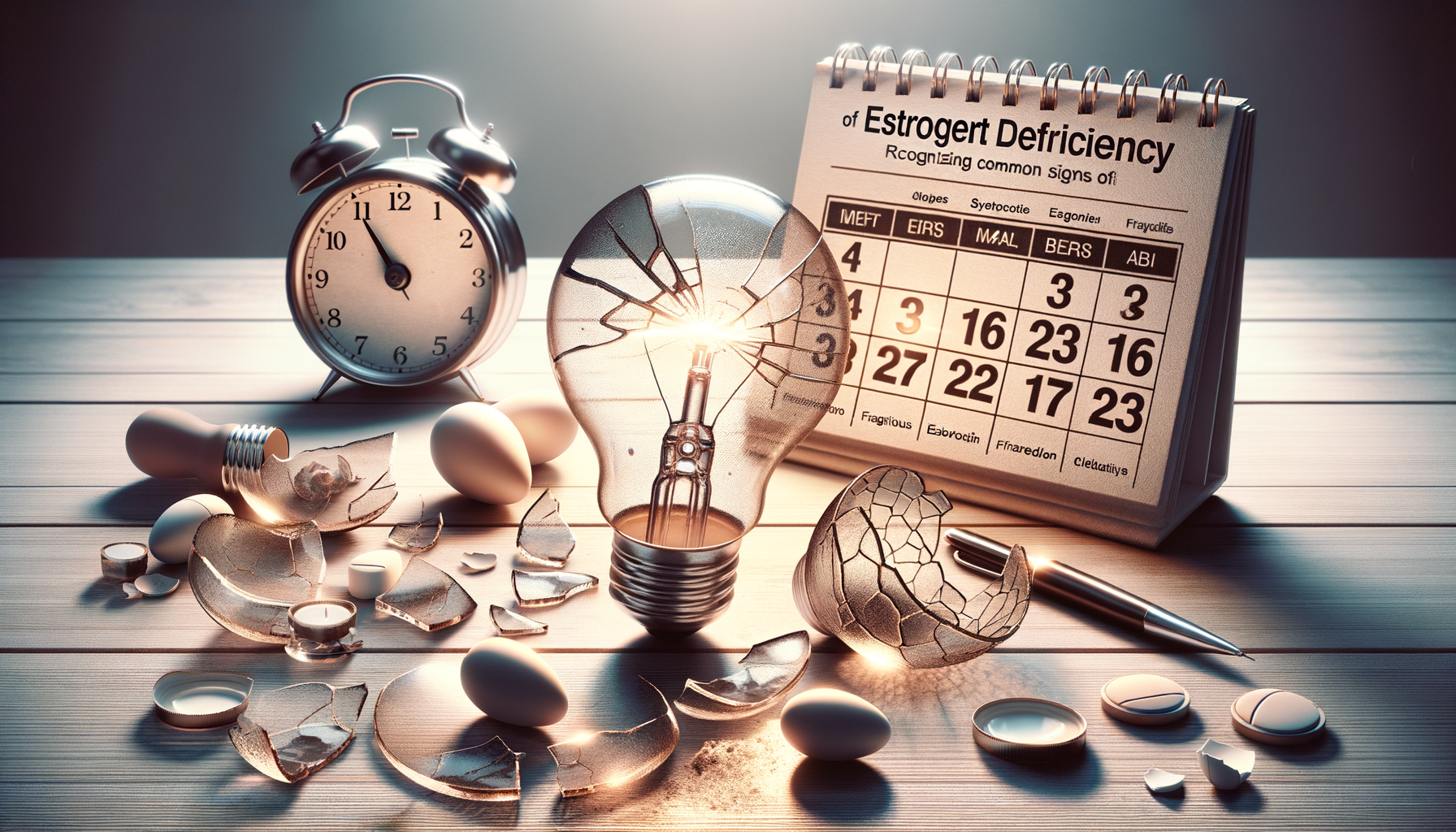Understanding Estrogen and Its Role
Estrogen is a crucial hormone in the human body, primarily associated with female reproductive health, but it also plays significant roles in other bodily functions. It is responsible for regulating the menstrual cycle, maintaining pregnancy, and developing secondary sexual characteristics. Beyond these roles, estrogen influences bone density, fat distribution, and even mood regulation. When estrogen levels drop, particularly during menopause, it can lead to a range of physical and emotional symptoms. Understanding the role of estrogen helps in recognizing its deficiency and addressing the symptoms effectively.
The hormone is produced mainly in the ovaries, and its production can fluctuate due to various factors. These include aging, surgical removal of the ovaries, and certain medical treatments. A decline in estrogen levels can affect the body in multiple ways, leading to symptoms that vary in intensity and duration. Given its widespread influence, recognizing early symptoms of estrogen deficiency becomes crucial for maintaining overall health and well-being.
Physical Symptoms of Estrogen Deficiency
Physical manifestations of estrogen deficiency can be diverse and impact various systems of the body. One of the most common symptoms is hot flashes, which are sudden feelings of warmth that spread over the body, often accompanied by sweating and a flushed appearance. These can be particularly disruptive, occurring at any time and often leading to sleep disturbances when they happen at night.
Another significant symptom is vaginal dryness, which may cause discomfort during intercourse and increase the risk of urinary tract infections. Estrogen helps maintain the thickness and elasticity of the vaginal walls, and its deficiency can lead to thinning and decreased lubrication. Additionally, women may experience irregular periods or changes in menstrual flow, signaling hormonal imbalances.
Other physical symptoms include:
- Joint and muscle pain
- Headaches or migraines
- Increased risk of osteoporosis due to decreased bone density
- Changes in cholesterol levels, potentially increasing the risk of cardiovascular issues
Recognizing these symptoms early can lead to timely interventions and management strategies to alleviate discomfort and prevent long-term health complications.
Emotional and Cognitive Symptoms
Estrogen deficiency doesn’t only affect the body physically; it can also have profound effects on emotional and cognitive well-being. Mood swings are a common symptom, with women experiencing rapid changes in mood, from irritability to depression. Estrogen is thought to play a role in the production of serotonin, a neurotransmitter that regulates mood, and its deficiency can lead to feelings of sadness and anxiety.
Cognitive symptoms are also noteworthy. Some women report experiencing memory lapses or difficulty concentrating, often referred to as “brain fog.” These cognitive changes can be distressing and impact daily functioning, affecting work performance and personal relationships.
Addressing these emotional and cognitive symptoms involves a holistic approach, including lifestyle changes, mental health support, and, in some cases, hormone replacement therapy. It’s essential to acknowledge these symptoms as part of the broader picture of estrogen deficiency and seek appropriate support and treatment.
Long-term Health Implications
Long-term estrogen deficiency can have significant health implications beyond the immediate symptoms. One of the most concerning is the increased risk of osteoporosis. Estrogen plays a critical role in maintaining bone density, and its deficiency can lead to bone thinning, making fractures more likely. Regular bone density screenings and preventive measures are crucial for women experiencing prolonged estrogen deficiency.
Cardiovascular health is another area affected by low estrogen levels. The hormone helps maintain healthy cholesterol levels, and its absence can lead to an increase in bad cholesterol (LDL) and a decrease in good cholesterol (HDL), raising the risk of heart disease. Women should be vigilant about cardiovascular health, adopting heart-healthy diets and regular exercise routines.
Furthermore, there is evidence to suggest that estrogen deficiency may influence cognitive decline and increase the risk of conditions like Alzheimer’s disease. While research is ongoing, maintaining a healthy lifestyle and staying mentally active are recommended strategies to mitigate these risks.
Seeking Support and Treatment Options
Recognizing the symptoms of estrogen deficiency is the first step towards seeking support and exploring treatment options. It’s essential for individuals experiencing these symptoms to consult healthcare professionals who can provide a comprehensive evaluation and recommend appropriate interventions.
Treatment options vary depending on the severity of symptoms and individual health profiles. Hormone replacement therapy (HRT) is a common treatment for managing symptoms, but it comes with potential risks and benefits that should be thoroughly discussed with a healthcare provider. For those who prefer non-hormonal approaches, lifestyle modifications such as a balanced diet, regular exercise, and stress management techniques can be effective in alleviating symptoms.
Support groups and counseling can also play a vital role in managing the emotional and psychological aspects of estrogen deficiency. Sharing experiences with others facing similar challenges can provide comfort and practical advice.
Ultimately, the goal is to enhance quality of life and reduce the impact of symptoms, enabling individuals to navigate this natural phase of life with confidence and support.




Leave a Reply